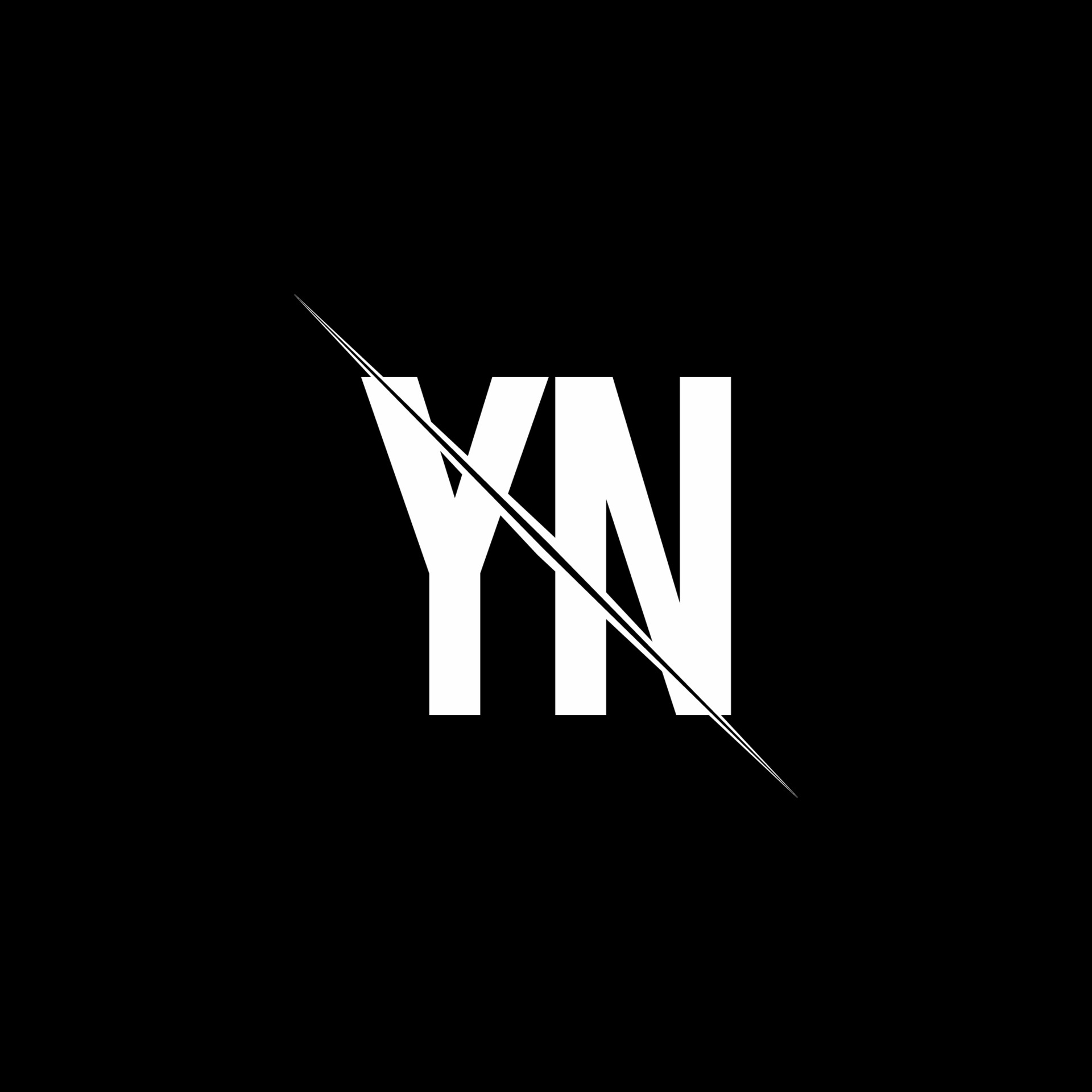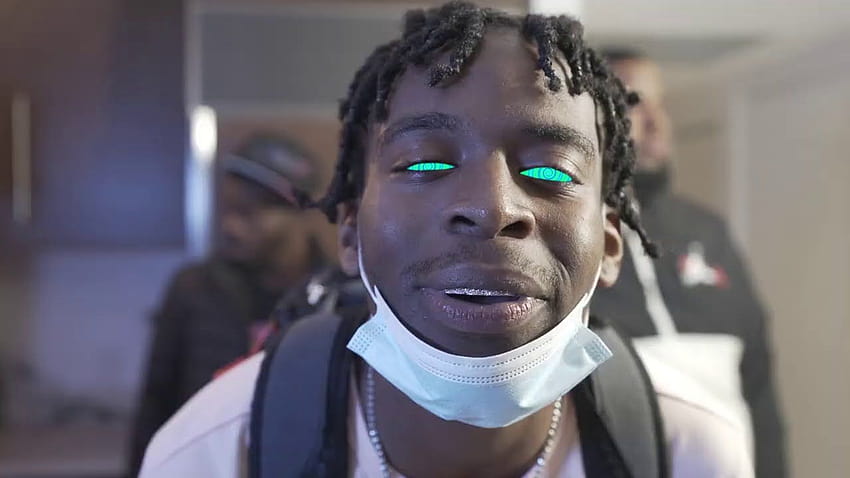Discovering 'YN Meaning' - A Look At Online Talk
Have you ever stumbled upon "yn" or "yns" while browsing online or chatting with friends and wondered what it could possibly mean? It's a common little string of letters that, quite frankly, changes its sense a lot depending on where you see it. We're going to pull back the curtain a little bit on this often-seen bit of online chatter, helping you get a better handle on its many different uses. So, it's almost like a secret code, isn't it, that you're about to crack?
You see, this short grouping of letters, "yn," is a fascinating example of how language shifts and takes on new life, particularly when people are talking to each other quickly online. It pops up in all sorts of places, from fan stories where you, the reader, are the main person, to quick messages between people, and even in some older ways people used to talk on the internet. Really, it's quite a shape-shifter, this "yn."
The different ways "yn" can be used show just how creative and quick-witted people are when they're communicating in short bursts. It's a bit like a linguistic chameleon, if you think about it, changing its colors to fit the immediate situation. Understanding these varied uses helps you feel more at home in the fast-paced world of online conversation and, in a way, really get what people are trying to say.
- Soiffer Haskin
- Richardson Adventure Farm Photos
- Taco Craft Cinco
- Sssniperwolf Husband
- Cierra Mistt Only Fans
Table of Contents
- What Does 'YN' Really Mean in Different Situations?
- How Does 'YN' Fit into Online Talk?
- Are There Other Ways 'YN' Shows Up?
- Why Does 'YN' Have So Many Meanings?
What Does 'YN' Really Mean in Different Situations?
The 'Your Name' Connection and its Use for 'YN' Meaning
One of the most common ways people use "yn" is as a quick way to say "your name." This is really big in places where stories are shared, especially fanfiction or interactive tales. Basically, when you see "yn" in a story, it's like a little blank space where you're meant to put yourself. It helps you feel like you're right there in the story, living out the events with the people in it. So, you know, it makes the whole experience much more personal.
Imagine reading a story and seeing a character say, "I can't believe 'yn' did that!" Instead of a made-up person's name, you picture yourself. This makes the story a lot more fun and personal for the person reading it. It's a rather clever trick, isn't it, to make someone feel like they are part of the tale? This way of using "yn" truly helps people get lost in their favorite made-up worlds.
When someone uses "yn" in a text message or an online chat, it often means they are talking about you, or perhaps asking for your name. It's a shorthand that saves a few key strokes, which is pretty handy in quick back-and-forth conversations. For example, if someone says, "What's 'yn' up to today?" they are, in fact, wondering what you are doing. It's just a little quicker to type, that's all.
This use of "yn" is very popular on platforms like TikTok and in those "point of view" videos. People create scenarios where the viewer is the main person, and "yn" acts as the stand-in for whoever is watching. It lets anyone watching imagine themselves in the situation being shown, making the content feel more directly aimed at them. So, in some respects, it builds a stronger connection with the audience.
'YN' as a Term for a Young Person for 'YN' Meaning
Another way "yn" gets used, and this is quite different, is as a quick way of saying "young nigga." This particular use comes from AAVE, which is African American Vernacular English. When people say "yn" in this sense, they are referring to a young person. The plural version, "yns," means "young niggas," referring to a group of young people. This meaning has been pretty common on TikTok and in meme captions, especially. It's actually a term that has a specific cultural background.
You might see "yns" or "them yns" written out, and it's all part of this same idea. It's a way people talk, a bit like a nickname for younger folks in certain groups. This use highlights how language can be very specific to certain communities and how words can take on new shapes and meanings within those groups. It's a rather direct way of speaking, you know, that has its own set of rules.
The term "young nigga" itself, and its short forms "yn" and "yns," are part of a broader way of speaking that has a history and specific social meaning within the communities where it is used. It's not just random letters; it carries a certain weight and context. So, when you hear it, it's usually in a very particular kind of conversation or content. It's almost like an inside term, isn't it?
Understanding this specific meaning of "yn" is important because it shows how language is alive and changes, with different groups of people creating their own ways to talk. It's a bit like learning a new dialect, really, when you start to pick up on these things. This particular "yn meaning" is tied to a specific cultural background and usage, making it quite distinct from the "your name" version.
How Does 'YN' Fit into Online Talk?
'YN' in Social Media and Fan Storytelling for 'YN' Meaning
On social media platforms, especially TikTok, "yn" is a very common sight. It's a way for creators to make their content feel more personal and interactive. When you watch a "point of view" video, for example, the person making the video might use "yn" to refer to the viewer. This lets the viewer step into the story and imagine themselves in the situation being shown. It's quite a clever way to draw people in, actually.
This use of "yn" is really about making a connection. It turns a passive viewing experience into something where the audience feels directly involved. Instead of just watching a story unfold, you are, in a way, the main person in it. This helps to create a stronger bond between the content creator and the people who are watching. It's a bit like a choose-your-own-adventure, but in video form, isn't it?
In fanfiction, the "yn meaning" as "your name" has been a staple for a long time. It allows readers to become the main person in their favorite stories, interacting with characters they love. This makes the reading experience much more personal and exciting. It's a tool that pulls fans deeper into their favorite stories and characters, making them feel like they are truly part of the action. So, in some respects, it's a very powerful storytelling device.
The popularity of "yn" in these contexts shows how much people enjoy feeling like they are part of the narrative. It's a testament to how creative people are in finding ways to make content more engaging and personal. This simple two-letter abbreviation has, quite honestly, changed how many people interact with online stories and videos. It's a rather neat little linguistic trick, you know, that has caught on in a big way.
The 'Why Not' Meaning for 'YN' Meaning
Beyond "your name" and the term for a young person, "yn" has another meaning, especially in quick text messages and online chats: "why not." This is a very straightforward use, acting as a quick way to ask or suggest something without a good reason to avoid it. It's a simple, casual way to express agreement or a lack of objection. For example, if someone asks, "Want to grab coffee?" you might just reply, "yn?" meaning "why not?"
This particular "yn meaning" is about brevity and ease of communication. In a world where people are often typing on small screens, saving even a few letters can feel like a win. It's a common texting abbreviation that's used to quickly get a point across. It's a bit like saying "sure" or "okay," but with a slight hint of curiosity or openness to the idea. So, it's a very practical way to talk, isn't it?
The "why not" use of "yn" fits right in with the general trend of shortening words and phrases in online communication. People are always looking for quicker ways to say things, and this is a good example of that. It's a very common phrase to see in informal conversations, showing up in chats between friends and family. You know, just a quick little response to keep the conversation moving.
This meaning of "yn" is quite distinct from the others because it's a question or a suggestion, rather than a placeholder or a label for a person. It highlights the versatility of short forms in online talk and how they can take on entirely different functions. It's a simple, yet rather effective way to communicate, especially when you are just trying to get a quick answer or give a quick agreement. So, it's a useful little tool, really.
Are There Other Ways 'YN' Shows Up?
'YN' as an Older Online Picture for 'YN' Meaning
Stepping back in time a little, "yn" also had a meaning as an old online picture, or emoticon, on MSN Messenger. This was a popular chat program a while ago, and "yn" was one of the little pictures you could use to show how you felt. It looked like a pair of crossed fingers, which typically means wishing for good luck or hoping something turns out well. It's a rather charming piece of internet history, if you ask me.
This particular "yn meaning" is a good reminder of how online communication has changed over the years. Before emojis were everywhere, people used these simple text-based or very small image-based emoticons to add feeling to their messages. The crossed fingers were a way to visually express hope or good wishes without having to type out a long sentence. So, it was a very efficient way to show emotion, wasn't it?
While this use of "yn" isn't common anymore, it shows how a simple combination of letters can take on a visual representation and convey a specific idea. It's a bit like an early form of what we now know as emojis, but with a simpler design. This older "yn meaning" really highlights the ingenuity people had in making their digital conversations more expressive, even with limited tools. It's quite fascinating, really, to see how things have evolved.
It's interesting to see how the same letters can pop up again and again with completely different meanings across different eras of online talk. This "yn" as crossed fingers is a testament to the creative ways people found to communicate visually before more advanced graphics were common. It's a simple, yet rather sweet little piece of internet lore, you know, that some people might still remember.
When People Say They Are 'YN' Together for 'YN' Meaning
There's another, somewhat older, way "yn" was used, particularly in the context of close relationships. If someone said that two people "are yn," it meant they were incredibly close, as tight as a pair of crossed fingers. The idea was that each finger represented a person, and when crossed, they were inseparable. This "yn meaning" speaks to a deep bond between individuals. It's actually a very sweet way to describe a close friendship or partnership.
This particular use of "yn" really emphasizes the idea of closeness and strong connection. It's a rather poetic way to describe two people who are always together, supporting each other, and sharing everything. It goes beyond just being friends; it implies a level of intimacy and trust. So, it's almost like saying they are two halves of a whole, isn't it?
While not as widely used today, this meaning of "yn" gives us a glimpse into how people used to express profound relationships in a concise way. It's a bit like a secret handshake for very close friends, a term that only those who truly understood its depth would use. This "yn meaning" shows how language can capture the nuances of human connection in just a few letters. It's quite a powerful little phrase, really.
The idea of "yn" as two people being "as tight as" crossed fingers is a lovely image. It's a reminder that even in short online communication, there's always room for expressions of deep feeling and connection. This older use highlights the rich history of online slang and how it adapts to express various aspects of human experience. You know, it's a pretty special way to talk about friendship.
Why Does 'YN' Have So Many Meanings?
The Adaptable Nature of 'YN' for 'YN' Meaning
The term "yn" is, quite frankly, a fascinating example of how words can change their sense based on the situation they are in. This ability to adapt is a hallmark of online talk, where people often look for quick and clever ways to say things. The very same letters can mean completely different things depending on who is saying them, where they are saying them, and what they are talking about. It's a bit like a linguistic puzzle, isn't it?
This adaptability is what makes internet language so interesting and, at times, a little bit confusing. When a new platform or a new way of talking pops up, existing words or short forms can be given new jobs. "Yn" is a prime example of this, moving from an old online picture to a placeholder in stories, and then to a term used in specific cultural contexts. So, in some respects, it's always on the move.
The fact that "yn" has so many different meanings shows how dynamic and fluid language can be, especially in the fast-paced world of digital communication. People are constantly creating new ways to express themselves, and old forms are often recycled with new purposes. This constant change means that staying current with online talk can be a bit of a challenge, but it's also what makes it so lively. It's actually quite a lively landscape, this online talk.
Ultimately, the many meanings of "yn" are a reflection of how human communication works online. It's about efficiency, creativity, and the desire to connect in new and interesting ways. The context really is everything when you are trying to figure out what "yn meaning" someone intends. You know, it's a pretty good example of how flexible language can be when people are talking to each other quickly.
Article Recommendations



Detail Author:
- Name : Eldon Dare
- Username : hailie75
- Email : melisa01@yahoo.com
- Birthdate : 2004-11-06
- Address : 791 Kirlin Green Suite 853 Williston, GA 93042
- Phone : 408.462.4767
- Company : Mohr-Boehm
- Job : Title Abstractor
- Bio : Minus veritatis ipsa natus et quisquam quaerat vel voluptas. Molestiae neque provident non dolorem nihil veniam. Voluptas laborum sint voluptatum necessitatibus ex. Magni sit quisquam qui sit sunt.
Socials
tiktok:
- url : https://tiktok.com/@huelsb
- username : huelsb
- bio : Aspernatur possimus adipisci sint fugit.
- followers : 5208
- following : 2638
instagram:
- url : https://instagram.com/bradley9750
- username : bradley9750
- bio : Qui possimus expedita qui voluptas. Omnis rem sunt voluptatem aut.
- followers : 5083
- following : 2583